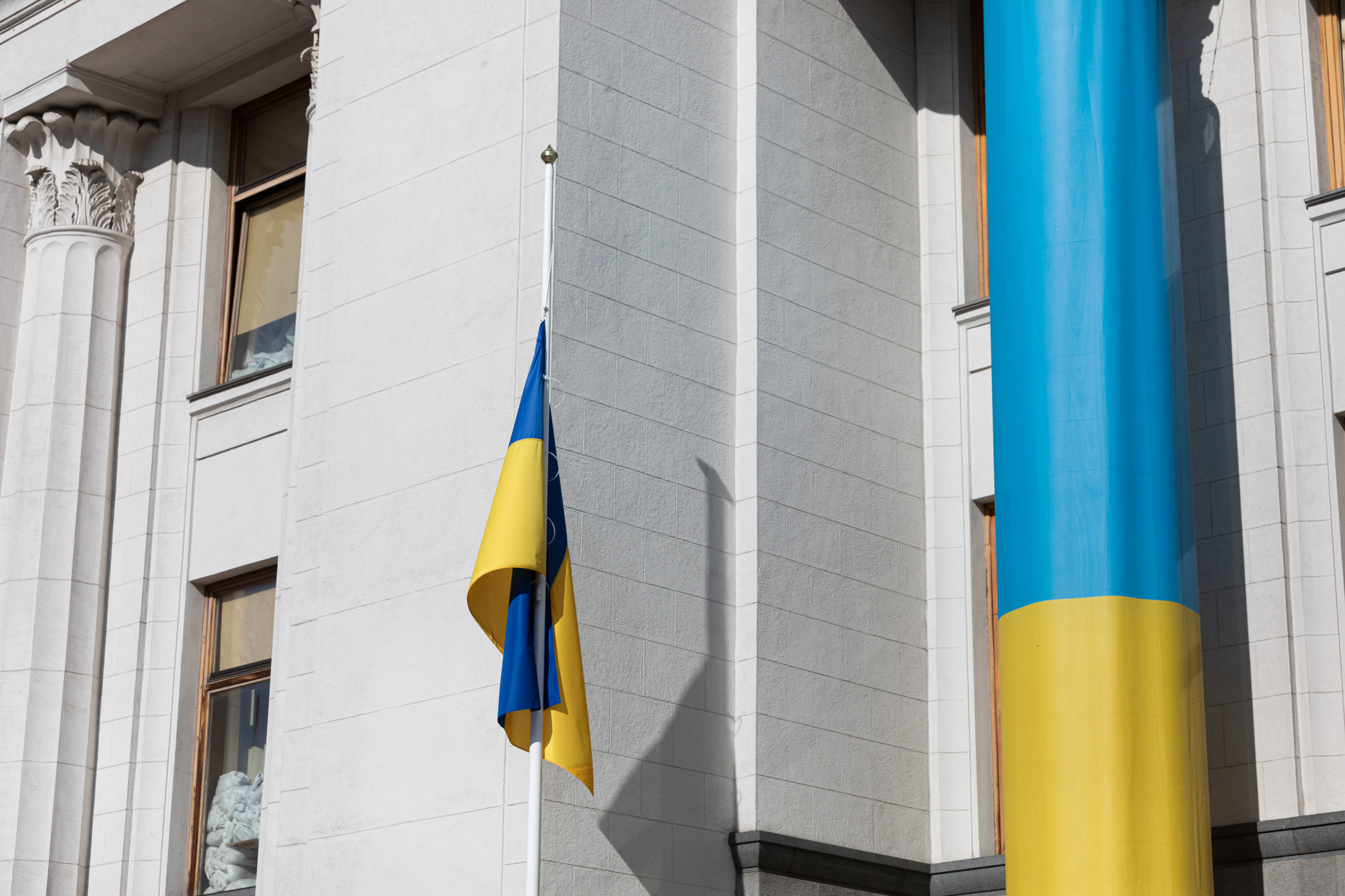War is detrimental to entrepreneurship in conflict-ridden countries. Empirical evidence shows consistently that the Russia-Ukraine war reduces entrepreneurial activity in both the formal and informal sectors of Russia and Ukraine, argue David Audretsch, Paul P. Momtaz*, Hanna Motuzenko, and Silvio Vismara in their new paper.
There are many ways by which war reduces economic productivity, including trade disruptions, human capital losses, physical capital destruction, technological regress, political instability, and more general uncertainty. However, the new evidence that war diminishes entrepreneurial activity is striking because the benefits of entrepreneurship often materialize only in a few years, implying that the post-war economic recovery will be more dampened in countries that rely to a greater extent on their entrepreneurs.
While previous studies have investigated the economic costs of conflict in terms of the GDP per capita, no research focuses on economic costs of conflict in terms of (foregone) entrepreneurship. This void is surprising given that entrepreneurial activity is an essential driver of job creation and economic growth in the long run. It is also surprising because many industry associations, such as the European Business Association, have long warned of the devastating effects of violent conflict on entrepreneurs.
Some studies have investigated how entrepreneurs are affected by violent conflict. Quite surprisingly, those studies seem to suggest a positive correlation between violent conflict and entrepreneurial activity (although most are qualitative or poorly identified, so the reported findings must be interpreted with caution). The positive association reflects a widely-held belief that war may promote economic growth. For example, the Thought Co. summarizes, “[o]ne of the more enduring myths in Western society is that wars are somehow good for the economy.” Similarly, the Institute for Economics & Peace argues that “[o]ne of the enduring beliefs of modern times is that war and its associated military spending has created positive economic outcomes.”
In our study we explore the impact of the Russia-Ukraine war that started in 2014 with the invasion of Crimea. Empirically, given the difficulty of evaluating how entrepreneurship would have evolved in Ukraine and Russia in the hypothetical absence of the war, we construct synthetic versions of Ukraine and Russia, i.e., we simulate how entrepreneurship in Ukraine and Russia would have evolved in the absence of war based on simulations that look at various predictors of entrepreneurship in unaffected countries. Using the synthetic control method to construct counterfactuals of how entrepreneurial activity would have evolved in Russia and Ukraine in the hypothetical absence of the war, we find clear evidence that both countries lost entrepreneurial activity, as measured by self-employment (a proxy of the informal sector) and registered Small and Medium-sized Enterprises (SMEs) (a proxy for the formal sector).
In Ukraine, the percentage of self-employed dropped sharply by 19.5% in the first conflict year, leading to the unemployment of 675 thousand formerly self-employed Ukrainians. The effect partially subsides over time, but foregone entrepreneurship still accounts for 8% in the fifth conflict year. The difference in SMEs with its synthetic version peaks in 2016, with a gap of 71 thousand SMEs corresponding to a relative loss of 14%, and recovers back to the synthetic trajectory five years into the war. Although the synthetic control method does not allow testing of the statistical significance of these economic estimates, we conduct in-space placebo tests that lead to the conclusion that the probability of observing a drop in Ukrainian entrepreneurship of a similar magnitude by chance is less than 5%. Therefore, the drop in Ukrainian entrepreneurship can be attributed to the war.
The trend observed among registered small and medium-sized enterprises (SMEs) in Russia differs from those observed in Ukraine. The findings suggest that the Russian invasion of Ukraine did not immediately impact SMEs in Russia. However, a significant impact was observed in the years following the invasion, particularly after the initial two-year period. From 2017 to 2019, there was a drastic decrease in the percentage of registered SMEs in Russia. These results indicate that the effect on Russian SMEs is delayed but highly pronounced in the long run, potentially resulting in even higher decline rates beyond our study period ending in 2019. In terms of absolute numbers, the analysis reveals that the total number of Russian SMEs in the final year was 3.3 million, while synthetic Russia estimates this figure to be 4.8 million. Consequently, in the absence of the war, the inferred gap of 1.4 million indicates a relative loss of 42%. The disappearance of Russian SMEs results from fewer new business creations and (to a more significant extent) more existing business closures.
The trends in entrepreneurial activity are plausibly affected by the sanctions imposed on Russia by the European Union in 2016. In Russia, entrepreneurial activity declined further after 2016. In contrast, Ukraine seems to recover from the initial shock starting in 2016, and entrepreneurial activity started climbing (almost) back to its pre-war level until 2019. By implication, the European sanctions against Russia seem to be effective, with dramatic effects on the Russian economy for years to come.
The findings of the study have important implications for policymakers. Since the Russia-Ukraine war negatively impacts entrepreneurial activity through reduced SME birth rates and increased SME closures, policymakers may take measures to mitigate these effects. They can help entrepreneurs enhance their resilience to the war’s consequences by diversifying into new markets, stabilizing demand, and strengthening supply chain resilience. This can be implemented through subsidy programs encouraging new product development and cross-border collaborations. Additionally, policymakers can incentivize potential entrepreneurs through subsidy programs to counter the decline in new venture creation. Specifically related to the Russo-Ukrainian conflict, policymakers should address the damage caused to Ukraine’s electricity infrastructure and ensure a steady supply of input factors by managing energy costs and addressing supply chain interruptions resulting from reduced trade with Russia.
The study contributes to the literature on the economic costs of war by challenging the scholarly consensus that conflict spurs entrepreneurship. It also offers an empirical basis for policy debates around the Russia-Ukraine conflict. More generally, the study helps reconcile heterogeneous findings in the growing literature that assesses the economic costs of conflicts in terms of GDP by expanding the set of examined outcomes from GDP per capita to lost entrepreneurship. Given that the contributions of entrepreneurship to GDP are heterogeneous across countries – e.g., entrepreneurship’s value added is 20% in Russia and 53% in Ukraine – the study results provide one explanation for why war impacts countries’ GDPs so differently, in addition to the impact on other sources of GDP. Further, given that nascent entrepreneurship value-added materializes with a lag between starting up and being profitable, the study also helps explain why GDP recovers with delays after conflict.
Future studies can investigate the impact of war on entrepreneurship in the attacked, attacking, and unaffected countries, considering factors such as displacement and emigration. The recovery of Ukrainian entrepreneurship and the continuous decline of Russian entrepreneurship suggest the need to examine how international support for Ukraine and sanctions against Russia may have moderated these patterns. Furthermore, understanding the spatial variation of war consequences on entrepreneurs in different geographic regions is essential. Additionally, exploring the heterogeneity of war effects on different product markets, particularly service and non-service sectors, is necessary. Examining multiple wars and their varying effects on GDP and the sources of treatment effect heterogeneity holds promise. Access to systematic data through collaborations with governments or industry associations or the implementation of representative surveys is recommended to address these research gaps.
Moreover, there are so many violent conflicts in the world, with the Armed Conflict Location & Event Data Project (ACLED) reporting more than 8,000 battles, more than 7,000 instances of violence against civilians, and more than 4,500 riots only in the first quarter of 2023, suggesting that many entrepreneurs, especially in developing countries, experience violent conflict as the norm. Therefore, it seems that war should have been incorporated into entrepreneurship theory, and entrepreneurial choice long ago. War impacts the environmental factors of entrepreneurial choice – i.e., freedom, constraints, uncertainty, and learning – in ways that both lead existing entrepreneurs to abandon their projects and deter latent entrepreneurs from entrepreneurial entry in the first place.
The study’s conclusions that Ukraine is recovering and Russia further erodes its entrepreneurial base have significant economic implications. The war is essentially eroding Russia’s economic substance of the future.
Authors: David Audretsch, Paul P. Momtaz, Hanna Motuzenko, Silvio Vismara
Attention
The authors do not work for, consult to, own shares in or receive funding from any company or organization that would benefit from this article, and have no relevant affiliations





